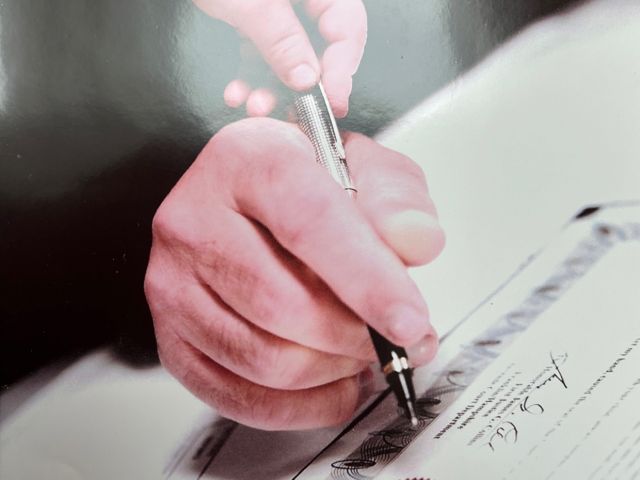Former Trial Court Judge and Legislator
Welcome to Collins Dispute Resolutions.
Thank you for visiting Collins Dispute Resolutions. As an attorney, former trial court judge and legislator, I have devoted my professional life to helping people resolve their disputes in a fair and compassionate way. I revere the Massachusetts Commonwealth’s judicial system, established in 1692, and oldest court in continuous existence in the Western Hemisphere, operating under the oldest, still functioning written constitution in the world. As a judge, I also have observed the personal, financial and time saving benefits that accrue to individuals, public and private institutions and businesses, when disputes are resolved amicably without recourse to litigation.
My legal practice concentrates on Alternative Dispute Resolution (ADR), Principled Interest-Based Legal Negotiation and School and Workplace Investigation.

Alternative Dispute Resolution (ADR)
In a mediation, there is no “attorney-client” relationship between me and any of the parties. Rather, I serve as an unbiased “neutral,” assisting the parties to make decisions together, in order to avoid the stress, costs and uncertainties of going to trial. Frequently, the parties to a mediation will have their own attorneys present to advise them. Essentially, the parties “own” the proceeding and are in charge of coming to a resolution, which is entirely voluntary.
In an arbitration, I serve not only as a “neutral,” but also as an impartial “judge,” determining the facts, applying the pertinent law and rendering a decision, typically binding, on the parties. Arbitration is increasingly included as the default alternative to litigation in many business and employment contracts. It is very similar to the work I was honored to do as a Massachusetts trial court justice for twenty years in the Juvenile Court Department.
Principled Interest-Based Legal Negotiation
In principled interest-based legal negotiations, there is an attorney-client relationship where I represent and advocate for an individual, business or public or private entity in negotiating a resolution to a present or looming dispute. The key to successful negotiations, as in many things in life, is preparation, understanding not only one’s own interests, but also those of the parties with whom your client is negotiating. Part of that preparation includes thinking through the “best alternative to no negotiated settlement” (BATNA) for all parties at the table, thereby providing a thoughtful strategy for the negotiation and options for a positive outcome.

School and Workplace Investigation
In a school or workplace investigation (an investigation may well include both educational and employment issues), the goal is to resolve disputes in order to assure a safe and welcoming place to learn and teach in preschool through college as well as a private or public workplace free of harassment, discrimination and fear of retaliation. The keys are promptness, thoroughness, impartiality and fairness.
The interplay of federal and state laws and regulations, such as Title IX, the Commonwealth’s Massachusetts Student Records Regulations, employee rights and responsibilities under collective bargaining agreements and employee handbooks and mandated reporter requirements will be carefully assessed for each individual investigation.
The scope of the investigation will be carefully defined with the client. The final report will be fact-based and findings based on a fair preponderance of the credible evidence of witnesses, documents and digital information. As the trial court judge in hundreds of vigorously litigated care and protection cases I ruled on the admissibility and weight to be given to close to a thousand court investigators’ reports as well as testimonial, documentary and digital evidence.
Taking each complaint seriously, receiving information respectfully and keeping an open mind go a long way in the complainant’s and respondent’s feeling that they were listened to and treated justly. Thus conducted, the morale of everyone in the organization can be uplifted .
A prompt, thorough, impartial and fair investigation with appropriate action by the employer and/or the school may well preclude recourse to litigation by the parties or limit liability. Regular follow-up to assure that any necessary corrective measures are being implemented further shows the good faith of the public or private institution or business.
As the former House Chairs of the Legislature’s Joint Committee on Education and the Special Commission on Unequal Educational Opportunity as well the recipient of both the “Thomas P. O’Neill, Jr.” award of the Massachusetts Association of School Committees and the “Friend of Education” award of the Massachusetts Teachers Association, I believe in the promise of education. As the co-sponsor, with Representative Barbara Gray, of Massachusetts’ law prohibiting sexual harassment, I know the inherent commitment of our governmental bodies and private businesses to assure workplaces where everyone can feel safe and secure to do their best work. Providing decision makers with a solid report as to the “who, what, where, how and why” of events is the first step to achieving these ideals for our schools and workplaces.
Meet James Collins

Judge James G. Collins
(Retired)Judge James G. Collins (Ret.) served for 20 years as a Juvenile Court Judge, sitting in Hampden, Hampshire, Berkshire and Worcester counties. He presided over some of the most complex and difficult cases before the court and was respected for his impartial, thoughtful and informed demeanor. He respectfully assisted parties in settling disputes, regularly bringing litigants together for the best interests of children and their families.
During his tenure, Judge Collins served two terms as President of the Massachusetts Judges Conference, the association of trial and appellate judges. He successfully advanced the cause of justice by negotiating initiatives with the Massachusetts Legislature, the Governor and with private entities, all in support of an independent judiciary able to serve and protect the rights of the people.
Prior to his judicial service, Attorney Collins practiced for 14 years as partner with Ritchie, Ennis, Seewald & Collins, P.C., and in his own firm in Amherst, MA, and of counsel to Growhoski, Callahan & Miles, P.C., in Northampton, MA. In addition to criminal cases in state and federal courts, his representations in civil practice involved municipal, education, family, employment and personal injury and medical malpractice law. His firms represented the Town of Amherst and numerous public entities and school districts, as well as a statewide private educational association and private businesses. Attorney Collins represented the public owners in the renovation and new construction of town libraries and public schools and the Amherst Town Hall and police station. For many years, he served as a faculty member in Massachusetts Continuing Legal Education seminars focusing on both school law and employment law.
During the 14 years he served as Massachusetts State Representative (1973-1986), he was House Chair of the Joint Committee on Education, a Member of the Special Commission on Unequal Educational Opportunity and a Member of the House Committee on Ways and Means. With Massachusetts Senator Walter Boverini, he co-sponsored a bill that was the largest local aid initiative for education to date. Representative Collins mediated and negotiated the local aid requests of the 351 towns and cities of the Commonwealth to achieve passage of the legislation. He also co-sponsored with Representative Barbara Gray the first provisions in Massachusetts outlawing sexual harassment. In addition, he was an initial co-sponsor of legislation in 1973, banning discrimination based on sexual preference.
As an attorney, he is admitted to appear before all Massachusetts courts, the United States District Court, the United States Court of Appeals, First Circuit and the Supreme Court of the United States.
He holds certificates in Mediating Disputes and in Negotiation and Leadership from the Program on Negotiation at Harvard Law School. He is a graduate of Suffolk University Law School and the University of Massachusetts at Amherst.
Free Initial Consultation
I would be delighted to consult with you regarding Alternative Dispute Resolution (ADR), Principled Interest-Based Legal Negotiation, School and Workplace Investigation or other legal matters. All communications are confidential. The consultation is on a no-fee basis.
Please note that my Mediation & Arbitration Neutral Services, can be provided either directly through Collins Dispute Resolutions or through the Hampden County Bar Association’s (HCBA) Arbitration and Mediation Service Panel of Neutrals upon which I sit. All services may be provided in person or via Zoom—both the dynamics among parties and the complexities of the issues should be considered in choosing a format.
The HCBA contact information found here is as follows:
Carolina Ocampo, ADR Coordinator
Hampden County Bar Association
Arbitration & Mediation Service
50 State Street, Room 137
Springfield, MA 01103
(413) 732-4660; Fax (413) 732-6882
Email: arbitrationmediation@hcbar.org
(413) 748-7951 (direct line)

